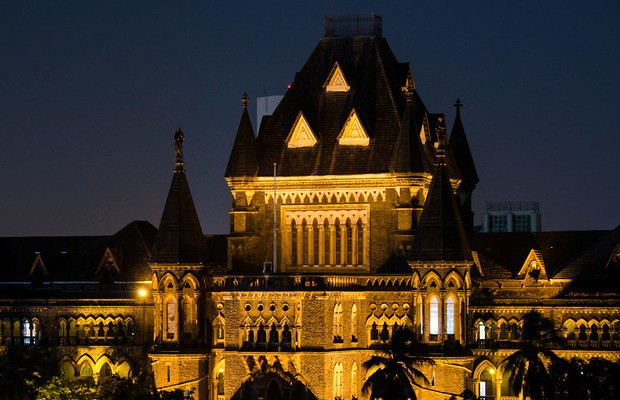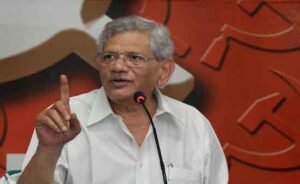Citations 1976 AIR 242, 1976 SCR (2) 48
Acts Involved Advocate Act, 1961 – Section 10, Advocate Act, 1961 – Section 3(2), Advocate Act, 1961 – Section 35, Advocate Act, 1961
Petitioner Bar Council of Maharashtra
Respondent M.V.Dabholkar
Bench/Judges KRISHNAIYER, V.R.
SARKARIA, RANJIT SINGH
GUPTA, A.C.
FAZALALI, SYED MURTAZA
Table of Contents
Facts of the Case
The respondents (16 advocates), who were lawyers practicing in criminal courts, were charged with professional misconduct under Section 35(1) of the Advocates Act, 1961, in that they positioned themselves at the entrance to the Magistrates Courts, watchful of the arrival of potential litigants and at sight, rushed towards the clients in an ugly scrimmage to snatch the briefs to lay claim to the engagements even by physical fight to undercut fees, and by this unedifying exhibition sometimes carried even into the Bar Library, solicited and secured work for themselves.
The Bar Council of Maharashtra considered the complaint received from the High Court against the lawyers and referred the matter to its Disciplinary Committee for further probe. The Disciplinary Committee of the State Bar Council held the respondents guilty of professional misconduct and suspended them from practicing as advocates for a period of three years.
On appeal, the Disciplinary Committee of the Bar Council of India held that under Rule 36 of the rules framed under Section 49(c) of the Advocates Act in order to be amenable to the disciplinary jurisdiction the advocates must have:
(i) solicited work,
(ii) from a particular person and,
(iii) with respect to a case.
It held that unless the three elements were satisfied it could not be said that an advocate had acted beyond the standard or professional conduct and etiquette. It therefore absolved all the respondents of the charge of professional misconduct. Released by a decision of the Bar Council of India, the State Bar Council went to the Supreme Court to make amends for the loss, under the conditions set out under Section 38 of the Advocates Act, 1961. This is why the current appeal took place.
Issues Raised
- Whether the prosecuted practitioners are guilty of professional misconduct?
- Whether the State Bar Council is considered an aggrieved party and is entitled to appeal?
Arguments Advanced From Petitioner
The Bar Council of Maharashtra, by its resolution considered the complaint received from the High Court against 16 Advocates who are charged with professional misconduct and covered by the present appeals, under Section 35 (1) of the Act, and presumably having reason to believe that the professional misconduct alleged required a further probe referred the case to its disciplinary committee.
Also this procedure is in due compliance with Section 35 (1) of the Act and, although the respondent has contended that the resolution of the Bar Council does not ex facie disclose that it had reason to believe that the advocates involved were guilty of professional misconduct, we see no merit in it.
The requirement of ‘reason to believe’ cannot be converted into a formalized procedural road block, it being essentially a barrier against frivolous enquiries. It is implicit in the resolution of the Bar Council, when it says that it has considered the complaint and decided to refer the matter to the disciplinary committee, that it had reason to believe, as prescribed by the statute.
Arguments Advanced from Respondent
The respondents contended on the ruling of this Court in Adi Pherozshah Gandhi’s case AIR 1971 SC 385, that the Bar Council of the State is not a person aggrieved to maintain an appeal against a decision of its disciplinary committee for these reasons:
Firstly, the Bar Council of a State is not an aggrieved person because the Bar Council has not suffered any legal grievance, and the decision of the Bar Council of India has not deprived the Bar Council of a State of anything.
Secondly, the allegation that the order of the disciplinary committee of the Bar Council of India is wrongfully made does not by itself give any grievance to the Bar Council of a State. The person must be aggrieved by the order and not by the consequences which ensue.
Thirdly, it is not the duty of the State Bar Council to attempt to set right any alleged error of the disciplinary committee of the Bar Council of India. The reason is that no such duty has been imposed or cast by law on the Bar Council of a State.
Fourthly, a person can be said to be aggrieved by an order which is to his detriment, pecuniary or otherwise or causes him some prejudice in some form or other.
Fifthly, the Bar Council of a State is subordinate to the Bar Council of India and is, therefore, not competent to appeal against any order of the superior body.
Finally, an appeal could have been filed by the Advocate-General or the Attorney-General of India who has the right to appeal but they have chosen not to do so.
Judgment
The learned Chief Justice has very clearly and succinctly set out the reasons why a State Bar Council is a “person aggrieved” entitled to appeal against orders in disciplinary proceedings against members of the Bar of the State. It represents the Bar of the State. It is the “keeper of the conscience” and the guardian of the interests of members of the Bar. It acts “as the protector of the purity and dignity of the profession”. Its functions in relation to disciplinary proceedings, is to entertain complaints against advocates, and, when there is a prima facie case of misconduct, to initiate proceedings by sending the complaint to its Disciplinary Committee. It has an interest in seeing that correct decisions are given upon matters involving allegations of misconduct against members of the Bar of the State.
Also, the Supreme Court overturned the decision of the State Tribunal on appeal. There were several reasons cited in the judgment:
1. The State Tribunal fell far short of norms like proper numbering of witnesses and exhibits, indexing and avoidance of mixing up of all cases together, default in examination of the respondents, consideration separately of the circumstances of each delinquent for convicting and sentencing purposes. Thus, this was violative of a fair.
2. The Appellate Tribunal was wholly wrong in applying Rule 36 which was promulgated only in 1965 while the alleged misconduct took place earlier.
3. By focusing entirely on the three requirements under Rule 36 and discharging the accused based on them not filling the criteria, the Tribunal completely misinterpreted and misused the law. The very act of snatching briefs and getting into physical fights with other lawyers to undercut feed and secure clients is unbecoming of a professional advocate and is clearly violative of professional ethics.
4. The canons of ethics and propriety for the legal profession are totally taboo conduct by way of soliciting,advertising, scrambling and other obnoxious practices,subtle or clumsy for betterment of legal business. “Law is no trade, briefs no merchandise and so the leaven of commercial competition or procurement should not vulgarize the legal profession”.



